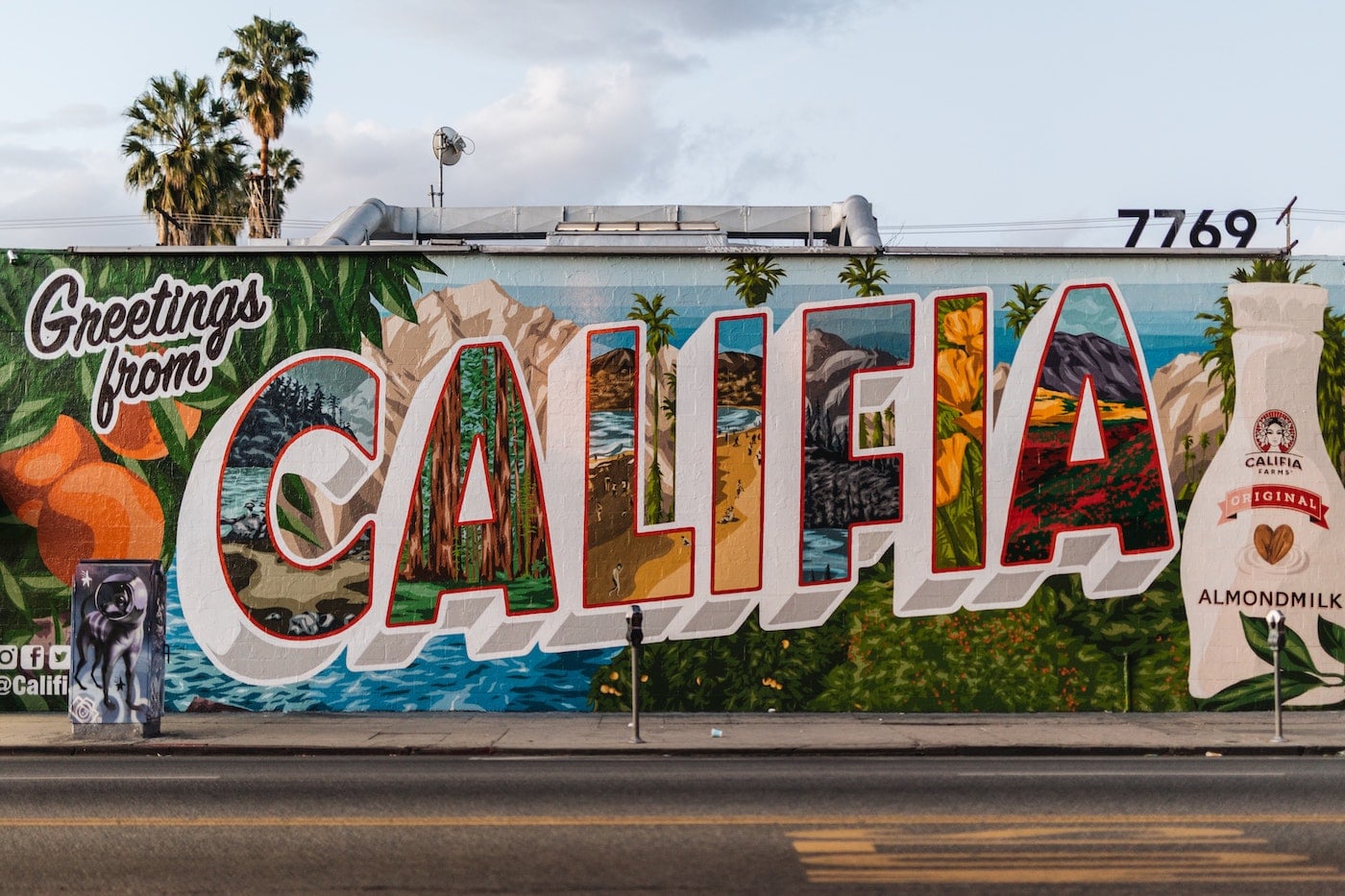5 places to spend your ad budget that are not Facebook

The advertising world is more than a little hooked on Facebook. The near-monopoly of social media advertising has built a platform that’s filled with so many toys and targeting capabilities that it’s hard to imagine allocating budget just about anywhere else. But the advertising industry is daring to imagine a post-Facebook world, at least temporarily.
For the month of July hundreds of major brands have publicly pledged to pull their media budgets from all of Facebook properties in a collective effort known as #StopHateForProfit. The goal of the campaign is to bring real accountability to a media company that seems to not only allow hate speech, violence, and harassment, but encourages it by building an algorithm that spreads it and a monetization system that rewards it. The boycott has raised one very important question around the (virtual) boardroom tables at many HQs: If we can’t spend our budget with Facebook/Instagram/Messenger/Audience Network, then where else can we spend it?
Facebook has made it so easy to create well-targeted campaigns with easy reporting and simple upkeep that many brands have forgotten the magic that makes great marketing. Those companies have become so focused on engagement rates, click-throughs, and easy conversions that they’ve forgotten to take a step back and ask themselves whether they are making the best possible investments of their limited advertising budgets.
My goal today is to offer some alternatives. This is in no way an exhaustive list, and it’s likely that the most brilliant uses of your budget lie just outside of what you or I or anyone else has considered. What this list will do is offer a few different perspectives, a few different weapons to put in your arsenal that will round out your marketing mix and allow you to build a marketing plan that serves your brand’s goals without it being entirely dependent on a single source.
- Snapchat, Twitter, Pinterest, Reddit, Linkedin & YouTube
- Direct relationships & media collaborations
- Relationships & ambassador programs
- Drive referrals: Loyalty programs, referral bonuses
- Earn your attention: Create content, do something remarkable
Facebook may be the biggest, but it’s certainly not the only game in town. Think of the other social channels as specialized tools. They each have their flaws, but when used precisely, they are each the best at what they do.
The way to plan that out is to consider what you’re trying to accomplish with your media spend, and what the various channels are used for by your intended audience. If your brand is all about live events and breaking news, then Twitter is where you want to be. That’s where you can buy ads into a hashtag within a given geographic region, getting your message seen by the people who are talking about that reality show, video game launch, or other cultural events that are relevant to you.
Similarly, Pinterest has a much different use than we might typically consider for social ads. People aren’t just scrolling, they’re actively searching for things they love, or things they might want to create/try/buy. Some of the best Pinterest ad campaigns look more like beautifully designed search advertising than social campaigns.
Then you’ve got Snapchat, where people under 25 is spending their time, Reddit where you can appear to hyper-specific interest groups, Linkedin for B2B brands, and YouTube for video.
Even if we’re still working within the realm of social media, there is a whole universe of media options that are outside of the Facebook garden, and when we’re strategic about the way we use them, they may even be more effective than what we’re used to.
Sometimes it doesn’t take a self-serve platform to purchase effective media. A lot of your favourite publishers sell space within their content through direct relationships and, unlike a faceless dashboard, they can share what’s worked in the past or even work together with you on the creative concept. Not to be opportunistic about this, but many of everyone’s favourite publishers are offering discounted rates right now, given the economic slowdown and the fact that many advertisers have pulled their budgets.
Whether you want to buy an ad-read in a popular podcast, or collaborate on a piece of advertorial content with a partner like Vox, Buzzfeed, or DailyHive, now may the best time to fire up a conversation with one of their reps. Just make sure that you retain creative control of your spot – their creative teams don’t know your brand like you do.
When the focus is entirely on getting in front of new people, earning new clicks, and driving new sales it can be easy to forget about the people most valuable to your brand. Ambassador programs bring people into the brand, build stronger advocates, and often end up creating content and conversations that will actually create action. Notice that I’ve avoided calling these influencer partnerships, and that’s intentional because the word “influencer” has become so loaded that it has lost much of its meaning. In this case, the practice I’m recommending involves you looking through your existing CRM and social channels to find those people who already love what you’re up to and working with them directly to create content, host interactive sessions, and otherwise tell their stories. By shifting your spend from forcing your story in front of people who haven’t heard of you to cultivating authentic stories from people who love you, you may find that every part of your acquisition funnel benefits.
What about all of the other people who buy your product? How can they share in these benefits? Whether your customer list is 100 or 100,000, you have a powerful opportunity to get those people sharing your message and bringing in new people.
The idea of a referral bonus or a loyalty program is nothing new, but it may be something that just never rose to the top of your priority list. In a scenario where you’re suddenly re-evaluating a media budget, it may be the case that the few thousand dollars it would take to invest in software, rewards, and design assets suddenly becomes available. Consider that media budget spent on things like Facebook ads has immediate calculable results, but programs that are well built, and build on themselves over time, become long term assets, and can return many multiples greater than their investment costs.
This is something that we challenge all of our clients with, whether they’re spending with Facebook or not: How can you earn attention, rather than just renting it?
Fundamentally, when we’re buying media anywhere, we’re renting that attention from someone else who has built an asset. We’re tenants, rather than owners. When we invest, instead, in earning attention, that can become a benefit to the business that retains value and grows over time. Specifically, I’m talking about email subscribers, website search rankings, or program sign-ups. Earning attention is hard, and that’s what makes it so worthwhile. Anyone can buy a pretty Facebook ad that gets a few clicks this week, but those website visits can mask a more important need that every brand has, and that’s to be remarkable.
Remarkability is the valuable advice that Wealthsimple offers to its users on its site, and it’s the local stories that Airbnb shares on its Youtube channel. It’s what we try to create by sharing the latest and most relevant digital marketing news every Monday in The Brief, our weekly email. And, it’s how Union Square Cafe in New York kept its people and its brand working during the pandemic when they were the first to create affordable at home fine dining.
Notice that some of these suggestions, especially the last three, may not seem like direct trade-offs to Facebook ads, but they may be if you take a minute to ask why we were all buying those ads in the first place. When we think about our goals, whether they’re based on revenue, reputation, retention, or brand-building, there are creative alternative ways that we can achieve each of them, and many of those methods may end up having far greater long term impacts on our businesses.
I’d love to hear from you – what are some marketing that you’ve been experimenting with lately that are an alternative to the Facebook model? Do you have any wins or lessons that you can share? Shoot us an email: hello@wearejunction.com or tweet at us: @HeyJunction.
.


